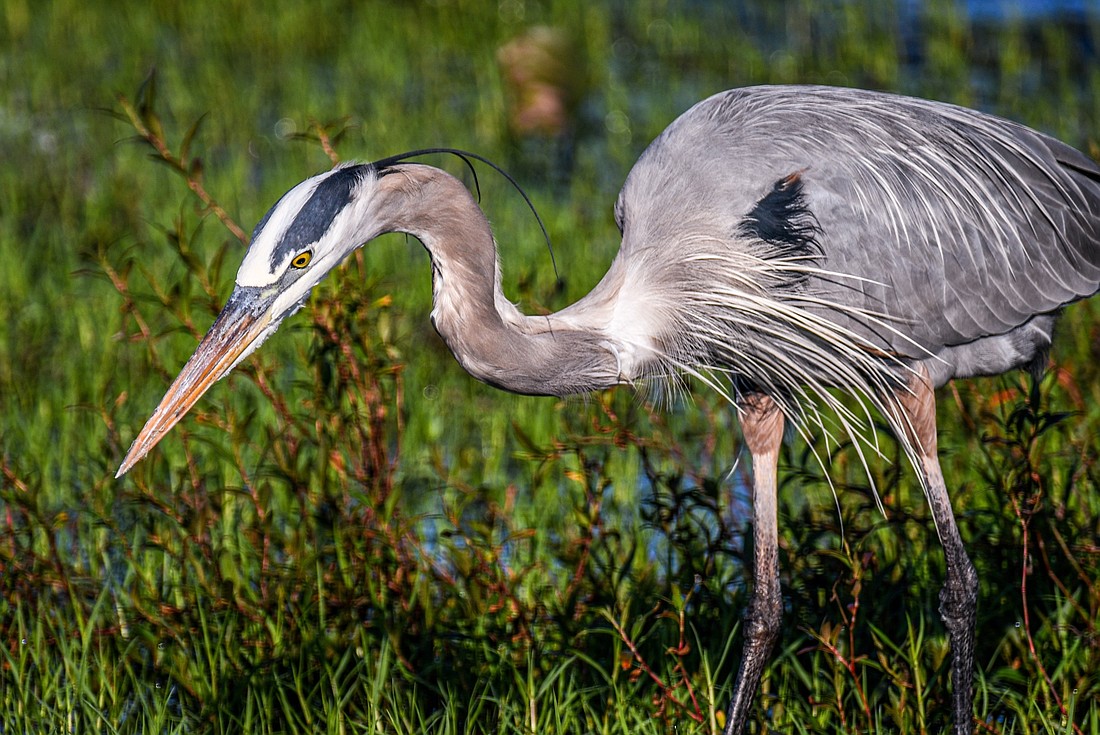- January 31, 2026
-
-
Loading

Loading

Stately, stealthy, and extremely patient, great blue herons are the largest herons in North America. Permanent residents of our wetlands, you'll also spot them on beaches and along pond and lake shorelines where their long legs allow them to wade deeper into the water than other birds, in seemingly constant quest for prey.
Great blue herons locate food by sight, and can hunt day and night, thanks to a high percentage of rod-type photo-receptors in their eyes, which improve their night vision. Solitary hunters, they use their sharp bill as a spear, with their long, curved neck providing the speed, force and reach necessary for snagging their prey. Though they will eat almost anything within striking distance, including amphibians and small mammals, great blue herons predominantly eat fish. And, as they swallow their prey whole, they will often first shake and pound a large catch, to break sharp spines and bones before swallowing.
Naturally wary of humans, herons are often seen congregated near anglers, waiting for handouts. No longer seeing humans as a threat, also known as habituation, can be dangerous for both birds and people.
Being near anglers increases the likelihood of serious injury to birds, either by getting snagged by a fishing hook or entangled in fishing line. And, once birds begin to associate people with easy food, they can become bold and pesky, creating a hassle (even hazard) for anglers and potentially putting the birds in further harm's way.
To help protect great blue herons, and other birds, we can avoid feeding them. And when fishing, always keep bait covered, to avoid attracting birds.
Save our Seabirds is a non-profit organization whose mission is to rescue, rehabilitate, and release sick and injured wild birds. Follow @SaveOurSeabirds to learn more about our birds.